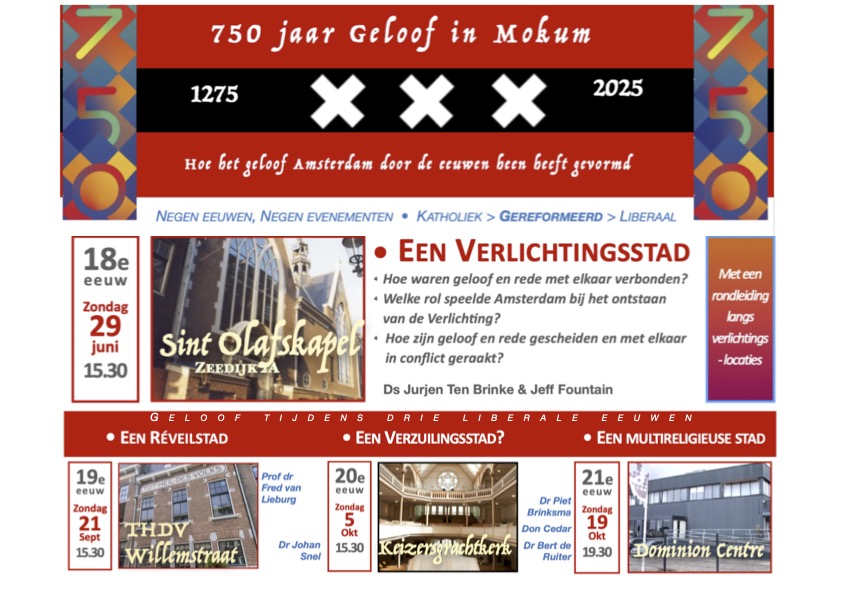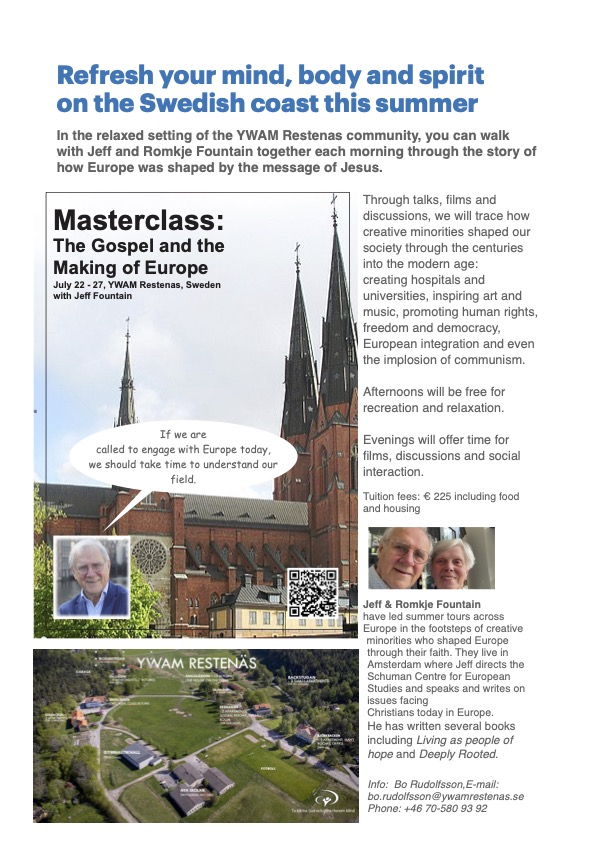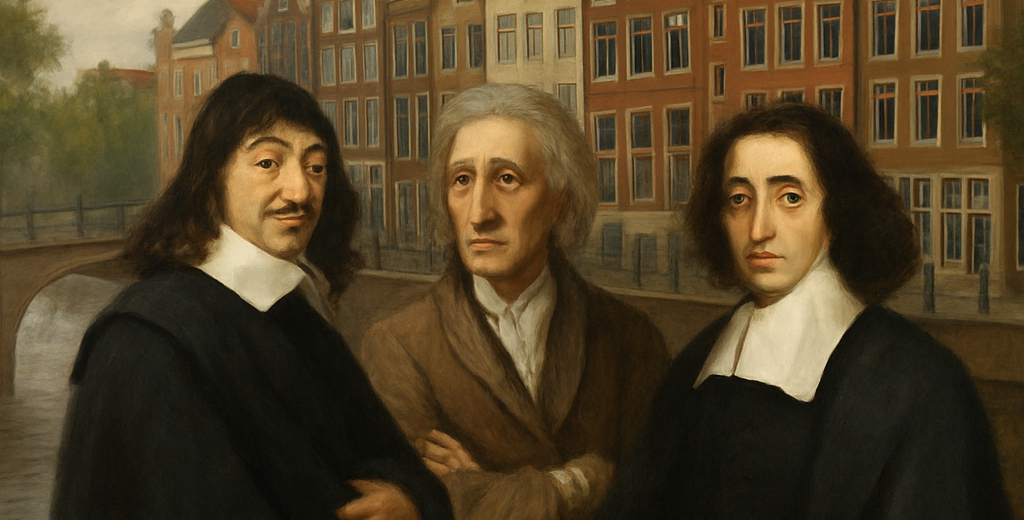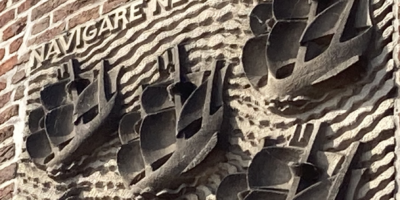How did secularisation unfold in a Europe that, at the time of the Reformation, seemed so thoroughly Christian—whether Catholic, Protestant, or Orthodox?
Amsterdam’s transformation from a bastion of Reformed faith in the 17th century to a cradle of secular modernity in the 18th is one major trajectory of that shift. And one worth tracing for those seeking to understand the soul of Europe today.
We explore this journey in the Geloof in Mokum series, marking Amsterdam’s 750th anniversary. Next Sunday, June 29, we visit 18th-century Amsterdam to see how secularisation began. Our venue, the 15th century St Olafs Chapel, embodies this secularisation process having been abandoned as a place of prayer after the Reformation and used for a variety of secular purposes, including now as a hotel conference centre.
In the mid-1600s, Amsterdam stood as a proud centre of Calvinist orthodoxy, fresh from the Dutch Revolt and the Eighty Years’ War. It led the world in publishing, trade, science, shipbuilding, map-making and exploration. Spiritually defined by the Reformation, it was also surprisingly tolerant by European standards. Yet paradoxically the Reformation’s emphasis on individual conscience and the authority of Scripture planted the very seeds of secularisation.
Where the transition from Catholicism to Protestantism happened overnight in Amsterdam, on May 26, 1578, the move from faith to secularity was slower and more complex. By the 18th century, the city had become a hub of Enlightenment rationalist thinking.
Three key figures—René Descartes, John Locke, and Baruch Spinoza—played crucial roles in this transformation. None were native Dutch, but Amsterdam’s unique mix of tolerance, intellectual openness, and prosperity was fertile ground for their ideas.
Descartes: Doubt
Frenchman René Descartes (1596-1650) arrived in the Dutch Republic in 1618 as a gentleman volunteer in the Dutch army rebelling against Spain. He found in the Netherlands a freedom of thought he couldn’t enjoy in France and spent much of the rest of his life in Amsterdam.
Descartes’s philosophy–his famous Cogito ergo sum (‘I think, therefore I am’)–questioned all received authority, including religious tradition. Though he developed rational arguments for God’s existence and remained a theist, Descartes laid the foundations for a worldview in which human reason, not divine revelation, was primary.
His dualism of mind and body, along with his emphasis on methodical doubt, gave rise to a culture of critical thinking that began to influence even Amsterdam’s Reformed academic circles. Calvinist theologians, alarmed that Cartesian thought might erode Scriptural authority, could not however stem his influence. The city’s emerging bourgeoisie increasingly adopted his lens of logic, observation and personal inquiry to view the world.
Locke: Toleration
English philosopher John Locke (1632-1704) spent most of his five-year exile (1683–1689) in Amsterdam. In this living laboratory he developed the ideas later formulated in his Letter Concerning Toleration (1689). First written in Latin under a pseudonym while in Amsterdam, it was published anonymously in English when Locke returned to England during the Glorious Revolution.
Locke was struck by Amsterdam’s diverse religious population managing a peaceful coexistence. His argument—that government should not coerce belief and that the legitimacy of the state rests on the consent of the governed—was grounded not in theory alone but in the real-life pluralism he witnessed.
His Letter Concerning Toleration advocated separation of church and state, defended freedom of conscience, and asserted that public life could be governed by shared reason rather than religious uniformity. These ideas laid the groundwork for secular governance, pluralistic education, and modern political liberalism.
Spinoza: Immanence
Amsterdam’s philosophical transformation is perhaps best embodied in Baruch Spinoza (1632-1677). Son of Portuguese-Jewish refugees, Spinoza was excommunicated from the Amsterdam Jewish community in 1656 for heretical views. He remained in the Netherlands, developing a system of thought that would revolutionise Western philosophy.
In Ethics, Spinoza identified God with Nature. He denied divine intervention, miracles, and revelation, offering instead a fully rational, immanent view of the universe. In his Theological-Political Treatise (1670), published anonymously in Amsterdam, he argued that Scripture should be read critically and that freedom of thought was essential for a stable state.
Spinoza was denounced by both religious and secular authorities but quietly revered by Enlightenment thinkers across Europe. His radically rationalist worldview made it increasingly possible to think morally and live meaningfully outside traditional religion. Amsterdam’s thriving print culture ensured his ideas spread far and wide.
The seeds nurtured in Amsterdam by Spinoza, Locke and Descartes thus became the intellectual roots of the Enlightenment and shaped the new political thinking behind the American and French Revolutions.
Ironically, it was the Reformation that helped pave the way for secularisation. What began as a call to return to the Bible evolved into a broader ethos of independent thought. By encouraging individual reading of Scripture and challenging ecclesiastical authority, it cultivated habits of inquiry and conscience.
Yet as we shall see in later Geloof in Mokum events*, the ensuing secular humanism sparked powerful reactions of dissatisfaction at reason’s shortcomings. Two major movements in the 18th and 19th centuries, Romanticism and Revivalism, protested in their different ways that humans were more than just cold, rational creatures. Feeling and transcendence was part of being human too. Like grass growing through the concrete, faith movements continued to express the divine presence in the secular city.
*In Dutch only:


Till next week,



